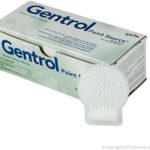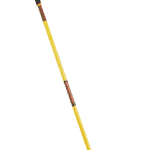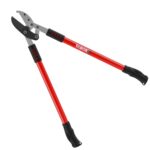Dealing with constipation can be really uncomfortable. Drinking plenty of water and eating foods high in dietary fiber can help improve bowel movements. Simple changes to your diet, like adding fruits, vegetables, and whole grains, are effective ways to boost your fiber intake.
Regular exercise and staying active can also help your digestive system work smoothly. Home remedies like drinking warm water or using a heating pad on your abdomen can often bring relief. If these methods aren’t enough, laxatives or other medications might be necessary, but it’s important to use them with caution and consider seeing a doctor for advice.
Hydration is key as well. Drinking enough water helps soften stool, aiding in bowel movements. When combined with a healthy diet and regular activity, many people find relief from the discomfort of constipation.
Understanding Constipation
Constipation happens when bowel movements become less frequent or harder to pass. This can cause discomfort and other health issues.
The Mechanics of Bowel Movements
Bowel movements start in the colon. Water gets absorbed, turning waste into stool. Muscles in the colon push the stool toward the rectum. If the muscles don’t work well, the stool gets hard and dry, making it hard to pass. Fiber and water play big roles in this process. Fiber adds bulk to the stool while water keeps it soft.
Causes of Constipation
Constipation can happen for many reasons. Diet is a big factor. Eating low-fiber foods like processed grains and sugary snacks can cause problems. Not drinking enough water can also lead to constipation. Lack of exercise and changes in daily routine can slow down bowel movements too.
Identifying Chronic Constipation
Chronic constipation means you have symptoms for a long time. Signs include having fewer than three bowel movements a week. Stools are often hard, dry, or lumpy. You might strain or feel pain when passing stools. Some people also feel like they haven’t fully emptied their bowels.
Impact of Lifestyle and Diet
Eating high-fiber foods helps. Foods like fruits, vegetables, whole grains, beans, and legumes are good choices. Drinking plenty of water is also key. Exercise can help your colon work better. Small changes in daily habits, such as eating more fiber and keeping hydrated, can make a big difference in preventing and treating constipation.
Effective Remedies and Treatments
Constipation can be uncomfortable and frustrating. Fortunately, there are several effective remedies and treatments available to help relieve it. These range from simple dietary changes to medical interventions.
Dietary Adjustments
Eating more fiber is one of the best ways to help constipation. Foods high in fiber include oat bran, wheat bran, and raspberries. People should aim for 22 to 34 grams of fiber each day.
Increasing fluid intake is important too. Drinking water and avoiding coffee and alcohol can help. Eating regular meals and not skipping breakfast may also help stimulate your digestive system.
Adding foods like chia seeds and flaxseeds to your diet can be beneficial. These foods add bulk to the stool, making it easier to pass.
Over-the-Counter Solutions
Several over-the-counter options can help relieve constipation. Laxatives can be effective, but there are different types to consider. Stimulant laxatives like senna help the intestines move.
Osmotic laxatives draw water into the bowel. An example is magnesium supplements.
Stool softeners and lubricant laxatives like mineral oil make the stool easier to pass. Fiber supplements such as psyllium can add bulk to stool and improve bowel movements.
Medical Interventions
If over-the-counter options are not effective, it may be necessary to see a doctor. Prescription medications can be used for severe constipation. These might include medicines that increase fluid in the intestines.
Enemas and suppositories can also be used to relieve constipation. These methods introduce fluid into the rectum to soften stools and stimulate bowel movements. It’s best to consult with a healthcare provider before starting any medical treatments.
Natural Remedies and Supplements
Natural remedies and supplements can help relieve constipation. Probiotics like yogurt or probiotic supplements aid digestion by balancing gut bacteria.
Herbal teas and certain foods can also help. Castor oil is a traditional remedy that acts as a natural laxative.
Magnesium, found in certain foods and supplements, helps draw water into the intestines. Gentle physical activities like yoga and massage can stimulate the digestive system.
Using these methods can help manage and prevent constipation effectively.
Frequently Asked Questions
There are various ways to alleviate constipation. These include home remedies, specific techniques while on the toilet, natural methods, traditional remedies, long-term management options, and certain foods and drinks that help.
What are the best home remedies for immediate constipation relief?
- Drink More Water: Staying hydrated helps keep stools soft.
- Eat High-Fiber Foods: Fruits, vegetables, and whole grains add bulk to stool.
- Exercise Regularly: Physical activity can stimulate bowel movements.
What techniques can I use to alleviate constipation quickly while on the toilet?
- Change Position: Squatting or using a footstool can help.
- Deep Breathing: Relaxation can reduce strain and make it easier to go.
- Abdominal Massage: Gently massaging the belly can help move stool along.
What natural methods are recommended for relieving constipation?
- Prunes and Pears: These fruits are high in fiber and can act as natural laxatives.
- Warm Liquids: Drinking warm water or herbal tea can stimulate digestion.
- Fiber Supplements: Psyllium husk and flaxseeds are often helpful.
Are there any traditional remedies that are effective for treating constipation?
- Castor Oil: Known for its strong laxative effect.
- Aloe Vera Juice: Can aid in bowel movements.
- Senna: A plant whose leaves are used as a laxative.
What are the options for managing chronic constipation long-term?
- Regular Exercise: Keeps the digestive system moving.
- Consistent Eating Habits: Eating at the same times each day can train your body.
- Daily Fiber Intake: Ensuring constant fiber in your diet helps keep stools regular.
Which types of foods or drinks are known to help ease constipation?
- High-Fiber Foods: Beans, lentils, and bran.
- Water-Rich Foods: Cucumbers, melons, and celery.
- Caffeinated Drinks: Small amounts of coffee can help stimulate a bowel movement.







